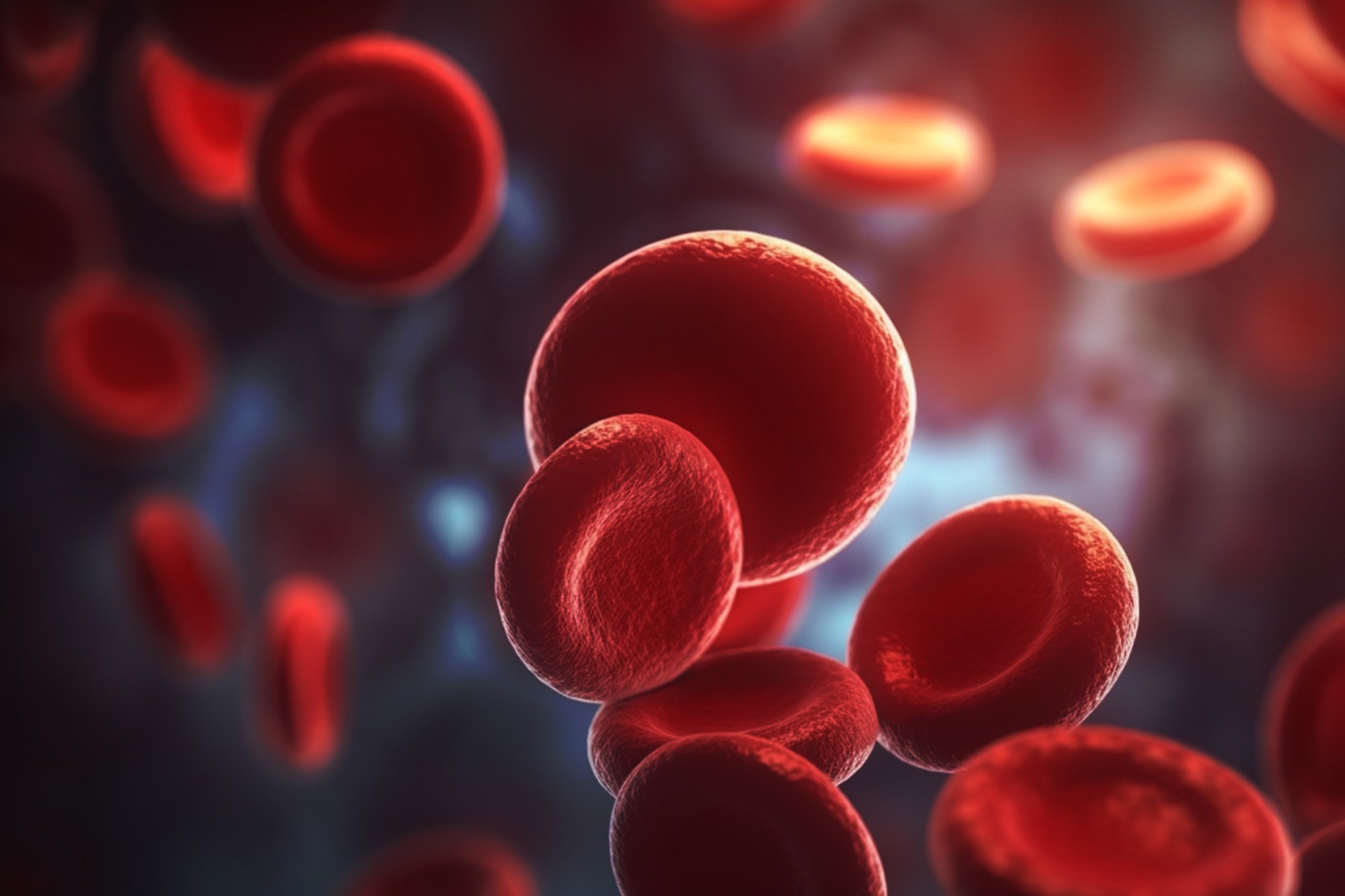Sirtuins (SIRTs) are proteins that regulate many cellular processes including mitochondrial function and genome integrity. In mammals, SIRT1-SIRT7 have been discovered, among which SIRT1 is the most extensively studied.
Although many studies have reported the association of SIRT1 with protection against cardiometabolic diseases, there is a lack of evidence regarding how this protein contributes to human vascular function. A recent Nutrients study investigates the effects of SIRT1 activation by resveratrol and energy restriction on vascular reactivity in adult men and women.
 Study: Sirtuin 1 and Vascular Function in Healthy Women and Men: A Randomized Clinical Trial Comparing the Effects of Energy Restriction and Resveratrol. Image Credit: lianleonte / Shutterstock.com
Study: Sirtuin 1 and Vascular Function in Healthy Women and Men: A Randomized Clinical Trial Comparing the Effects of Energy Restriction and Resveratrol. Image Credit: lianleonte / Shutterstock.com
Background
The endothelium regulates vascular homeostasis by acting as a barrier and active regulator. Many studies have linked endothelial dysfunction with risk factors for atherosclerosis.
Vascular reactivity parameters are used to assess endothelial function. For example, nitroglycerin-mediated vasodilation (NMD) and flow-mediated dilation (FMD) are non-invasive techniques based on vascular reactivity parameters that are extremely useful for predicting cardiometabolic events in high-risk populations.
Oxidative stress has been identified to be a key factor for endothelial dysfunction. During oxidative stress, nitric oxide (NO) production, activation, and bioavailability decrease.
FMD, an endothelium-dependent process, indicates the relaxation of an artery in high stress conditions during post-occlusive reactive hyperemia. FMD is inversely linked with cardiovascular events and risk factors, such as blood lipids, body mass index (BMI), and smoking. In high-risk individuals, low FMD is also correlated with impaired endothelium-dependent relaxation of coronary arteries.
Sympathetic nervous system (SNS) activation by alpha1- and beta2-adrenoreceptor signaling regulates vascular reactivity through the induction of vasoconstriction and vasodilation. Impaired beta-adrenergic signaling is commonly associated with aging, hypertension, heart failure, obesity, metabolic syndrome, and diabetes. This impaired condition leads to increased noradrenaline release and a chronic vasoconstrictive state.
Animal studies have shown that SIRT is associated with longevity. SIRT1 is an nicotinamide adenine dinucleotide NAD+-dependent protein deacetylase that possesses antioxidant and anti-inflammatory activity. In vitro experimental studies have demonstrated sympatholytic effects of SIRT1, along with improved cardiovascular function.
In animals, dietary energy restriction is a common activator of SIRT1 that facilitates longevity-increasing effects. However, the long-term maintenance of energy restriction conditions could be difficult.
Notably, several foods and compounds have shown SIRT1 activation ability. Resveratrol, for example, is a non-flavonoid polyphenolic compound that is naturally present in many foods including berries, grapes, and peanuts. Previous studies have shown that this compound improves cardiometabolic parameters, such as the lowering of blood lipids, glucose homeostasis, and blood pressure.
About the study
A randomized trial was conducted to determine the effect of SIRT1 activation by resveratrol supplementation and energy restriction on vascular reactivity in healthy male and female adults.
In this trial, 48 healthy individuals were recruited to analyze the effects of 500 mg/day resveratrol supplementation and energy restriction of 1,000 kcal/day for 30 days on vascular reactivity parameters and SIRT1.
This cohort comprised 24 postmenopausal women and 24 men between 55 and 65 years of age. None of the participants had a history of cardiovascular conditions or any non-communicable diseases.
Participants were subjected to a 15-day washout period, during which no medications or supplements were provided. Each participant was randomly assigned to either caloric restriction or resveratrol groups in a 1:1 ratio based on gender.
Biochemical parameters including triglycerides, high-density lipoprotein cholesterol (HDL-c), total cholesterol, apolipoprotein A-I (apoA-I), low-density lipoprotein cholesterol (LDL-c), apolipoprotein B (apoB), non-esterified fatty acids (NEFA), lipoprotein (a) (Lp(a)), glucose, insulin, gene expression of SIRT1, high-sensitivity C-reactive protein (hsCRP), noradrenaline (NA) and serum levels, were measured. Furthermore, vascular reactivity parameters such as endothelium-independent vasodilation and endothelium-dependent were estimated.
Study findings
The current study revealed that 30 days of energy restriction and 500 mg/day of resveratrol supplementation increased circulating SIRT1 and reduced plasma NA levels.
At baseline, plasma NA reduction was robustly associated with higher circulating SIRT1. After 30 days of interventions, circulating SIRT1 was positively correlated with NMD, independent of sex and interventions.
Circulating SIRT1 was also independently associated with NMD in the energy restriction group. Although no statistically significant difference was observed regarding SIRT1 gene expression, a statistically significant association with FMD in men was observed.
Mechanistically, SIRT1 activation by energy restriction occurs due to declining glycolytic rates that aids respiratory metabolism. This leads to SIRT1 activation through NAD+ replenishment and NADH reduction. Increased pyrazine-amidase and nicotine-amidase 1 (PNC1) and nicotinamide phosphoribosyl-transferase (Nampt) expression also occurs due to energy restriction.
Conclusions
The current study demonstrated that 500 mg/day of resveratrol supplementation increased circulating SIRT1 similar to that of a severe energy restriction diet.
Baseline SIRT1 gene expression was positively correlated with changes in FMD, thus suggesting that individuals with higher SIRT1 gene expression present higher FMD. SIRT1 expression was also positively linked with FMD in men.
These findings indicate that energy restriction may improve FMD in men by increasing circulating SIRT1 levels and lowering of BMI. Future studies must use more biomarkers of SIRT1 biochemical pathways to better understand its vascular and metabolism functions.
Journal reference:
- Gonçalinho, G. H. F., Kuwabara, K. L., de Oliveira Faria, N. F., et al. (2023). Sirtuin 1 and Vascular Function in Healthy Women and Men: A Randomized Clinical Trial Comparing the Effects of Energy Restriction and Resveratrol. Nutrients, 15(13). doi:10.3390/nu15132949